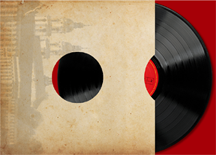I know it's been said many times before but he was a genius, wasn't he?
My iPod's "random" function (which isn't mathematically random...) keeps throwing up bits of the Audite RIAS set and every time it does I'm just STUNNED by the quality of the music making. It's extremely flexible in tempo but somehow in a very natural, unforced way. And his ability to make transitions work is almost supernatural.
Whilst the Audite set sounds pretty good, it's beyond tragic that the sound given to Reiner in Chicago in 1954 was never given to Furtwangler and the BPO......
My iPod's "random" function (which isn't mathematically random...) keeps throwing up bits of the Audite RIAS set and every time it does I'm just STUNNED by the quality of the music making. It's extremely flexible in tempo but somehow in a very natural, unforced way. And his ability to make transitions work is almost supernatural.
Whilst the Audite set sounds pretty good, it's beyond tragic that the sound given to Reiner in Chicago in 1954 was never given to Furtwangler and the BPO......




Comment